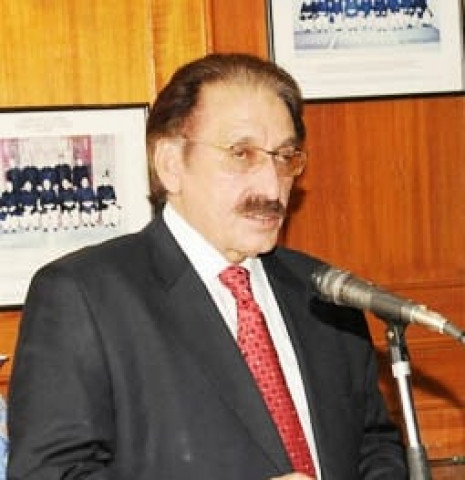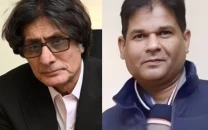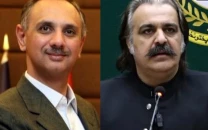No one can claim supremacy over and above law: Chief justice
CJ says parliament cannot legislate any law repugnant to Constitution and Islam.

He was talking to a 50-member delegation of Youth Parliament accompanied by Chairman Steering Committee SM Zafar, member Wazir Ahmed Jogezai, former deputy speaker National Assembly and officers of Youth Parliament Secretariat.
“Where any question of public importance arises with reference to the enforcement of any of the Fundamental Rights ensured under the Constitution of Pakistan, then the Supreme Court has the power to make any appropriate order for the enforcement of these rights,” the chief justice asserted.
He said that the apex court, in its successive judgments has stressed the need for adherence to the law and the Constitution and compliance with the rule of law and due process requirement to establish a system of civilised governance in the country.
SC can review laws repugnant to Constitution
The chief justice further said that the Parliament is required to formulate laws in accordance with the Constitution for the betterment of the public at large so that these laws can be made applicable. He added that the Parliament cannot legislate any law repugnant to the Constitution and against the injunctions of Islam or contrary to fundamental laws.
“If such a law is promulgated, then the Supreme Court under its power of Judicial Review can review it. The underlying object of judicial review is to check the abuse of power by the public functionaries and to ensure just and fair treatment to the citizens in accordance with the law and constitutional norms.”
Referring vaguely to the much talked about clash of institutions, the chief justice said that every organ of the state enjoys complete institutional independence within its constitutional domain, however, any excess or misuse of power beyond that domain becomes the subject matter of judicial scrutiny.
He said the Supreme Court, to the exclusion of any other court, has the jurisdiction to pronounce declaratory judgments in any dispute between the Federal Government and a provincial government or between any two or more provincial governments under Act 184(1).
The chief justice also advised members of the Youth Parliament to study basic features of our Constitution and how the document has been interpreted by the courts to acquaint themselves with the constitutional history and the role of superior courts in protecting the fundamental rights and the constitutional development of Pakistan.
Senator SM Zafar said that the Youth Parliament is willing to bring about change if they are given a chance.
He further pointed out that in Pakistan, education has not been taken care of because if it had been properly taken care of, the country would have flourished.
The chief justice presented the Supreme Court Annual Report to the Youth Parliament which provides information on the workings of the Supreme Court.
The delegation also presented a shield to the chief justice.
Earlier, Dr Faqir Hussain, Registrar Supreme Court of Pakistan, welcomed the Youth Parliament to visit the Supreme Court.

















COMMENTS
Comments are moderated and generally will be posted if they are on-topic and not abusive.
For more information, please see our Comments FAQ